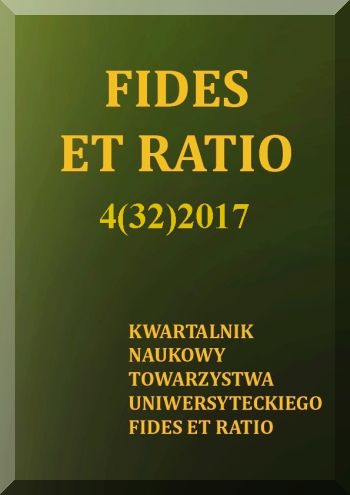Abstract
The aim of the study was to identify types of love and styles of conflict resolution in the group of people participating in psychological workshops in 2016/2017. The research problem was related to differences in the above-mentioned variables due to gender and the correlation between love types and conflict resolution styles as well as changes in time. The workshop on communication, forgiveness and love was attended by 33 people studying at the Faculty of Physical Education at the Academy of Physical Education in Warsaw. The first group consisted of 15 participants in master's studies, and the other 18 people, studying at the first stage of study. The diagnostic survey method was used in the study. The scale of attitudes toward love (The love attitudes scale) and the question of self-diagnosis of the style of conflict resolution were used. In subjects dominates the type of love, Eros and Agape. Women stronger than men are experiencing Mania and Agape love. In conflict situations, the respondents use the style of cooperation and compromise as a means to resolve the conflict. Women are more cooperative than men. There are correlations between the variables tested. Love does not change over time.
References
Biblia Jerozolimska (2006), Wydanie pierwsze, Poznań: Wydawnictwo Pallotinum.
Borg M., Kembro J., Pedersen Notander J., Petersson C., Ohlsson L. (2011), Conflict Management in Student Groups - a Teacher’s Perspective in Higher Education, Högre utbildning, 1 (2), 111-124. Dostęp: 19.05.2017 https://www.researchgate.net
Breggin P.R., (1992), Beyond conflict: From Self-help and Psychoterapy to Peacemaking, New York: St. Martin's Press. Dostęp: 12.05.2017 https://books.google.pl
Bugay A., Tezer E. (2008), Attachment Styles and Loving Attitudes among Turkish University Students. Paper presented at 2nd Global Conference: Persons, Intimacy and Love, Salzburg, Austria, 10-13 March. (1-9). Dostęp: 15.05.2017 https://www.researchgate.net
Cramer K., Marcus J., Pomerleau C., Gillard K. (2015), Gender invariance in the Love Attitudes Scale based on Lee's color theory of love, TPM: Testing, Psychometrics, Methodology in Applied Psychology, 22 (3), 403-413. Dostęp: 04.06.2017 http://www.tpmap.org
Fromm E., (2007), O sztuce miłości, Poznań: Dom Wydawniczy Rebis.
Gajda M., Gajda M., (2012), Rozwój. Jak współpracować z łaską, Goleniów: Pro Homine.
Gordon T., (1993), Wychowanie bez porażek, Warszawa: Instytut Wydawniczy PAX.
Gut J., Haman W., (1993), Docenić konflikt: od walki i manipulacji do współpracy, Warszawa: Wydawnictwo Ośrodek Negocjacji, Mediacji i Marketingu „KONTRAKT” .
Hamer H., Komunikowanie i psychologia zarządzania. Podyplomowe Studia Rachunkowości Gospodarstw Rolniczych SGGW, Dostęp 25.05.2017 ekr.rgr.sggw.pl/materialy/hamer.doc
Hendrick C., Hendrick S. S. (1986), A theory and method of love, Journal of Personality and Social Psychology, 50 (2), 392-402. Dostęp: 18.05.2017 doi:10.1037/0022-3514.50.2.392
Hendrick C., Hendrick S. (1988), Lovers Wear Rose Colored Glasses, Journal of Social and Personal Relationships, 5 (2), 161-183. Dostęp 12.05.2017 doi:10.1177/026540758800500203
Hendrick C., Hendrick S., Foote F.H., Slapion-Foote M.J. (1984), Do Men and Women Love Differently? Journal of Social and Personal Relationships, 1 (2), 177-195. Dostęp 20.05.2017 https://doi.org/10.1177/0265407584012003
Hitchcock M.A., Anderson A.S. (1997), Dealing with Dysfunctional Tutorial Groups, Teaching and Learning in Medicine, 9 (1), 19-24. Dostęp: 21.05.2017 https://www.researchgate.net
Kiralp Y., Dincyürek S., Beidoglu, M. (2009), Determining the conflict resolution strategies of university students, Procedia - Social and Behavioral Sciences,1(1),1205–1214. Dostęp:18.05.2017www.sciencedirect.com/science/article/pii/S1877042809002201
Krok D. (2007), Strategie rozwiązywania konfliktów w systemie rodzinnym, Roczniki teologiczne, LIV (10), 119-138. Dostęp: 03.06.2017 https://www.kul.pl
Lee J.A., (1973), The colors of love: An exploration of the ways of loving, Don Mills: New Press.
Lenczewska A., (2016), Słowo pouczenia, Poznań: Wyd. Agape.
Oakley B., Felder R.M., Brent R., Elhajj I. (2004), Turning Student Groups into Effective Teams, Journal of Student Centered Learning, 2 (1), 9–34. Dostęp: 03.06.2017 https://www.researchgate.net
Payne B., Sumter M. T., Monk-Turner E. (2005), Conflict resolution and group work: What students learn, Academic Exchange Quarterly, 9 (2), 22–27.
Petrie P., (2013), Komunikacja w pracy z dziećmi i młodzieżą: wprowadzenie do pedagogiki społecznej, Poznań: Wydawnictwo Zysk i S-ka.
Reiss I.L., (1980), Family systems in America, New York: Holt, Rinehart and Winston.
Sheridian Ch.L., Radmacher S.A., (1998), Psychologia zdrowia. Wyzwanie dla biomedycznego modelu zdrowia, Warszawa: Instytut Psychologii Zdrowia PTP.
Smith R., Klases A. (2016), Predictors of Love Attitudes: The Contribution of Cultural Orientation, Gender Attachment Style, Relationship Length and Age in Participants From the UK and Hongkong, Interpersona: An International Journal on Personal Relationships, 10 (1), 90-108. Dostęp: 10.06.2017 http://dx.doi.org/10.5964/ijpr.v10i1.204.
Sternberg R.J. (1986), A triangular theory of love, Psychological Review, 93, 119-135.
Winter J.K., Waner K.K., Neal-Mansfield J.C. (2008), Team climate and productivity for similar majors versus mixed majors, Journal of Education for Business, 83 (5), 265–269. Dostęp: 24.05.2017 http://dx.doi.org/10.3200/JOEB.83.5.265-269
Wojciszke B., (2014), Psychologia miłości, Gdańsk: GWP.
Wojtyła K., (1998), Poezje. Poems, Kraków: Wyd. Literackie.
www.doskonaleniewsieci.pl/Upload/Artykuly/0_3/zestawienie_zalacznikow_ore.pdf
World Health Organization (WHO)., (2017), Depression. Dostęp: 18.XI. 2017 http:/www.who.int/mediacentre/factsheets/fs369/en.
